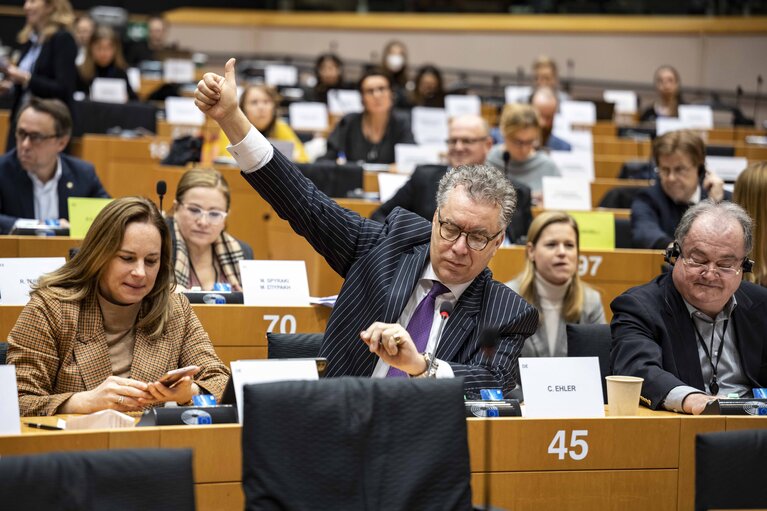In a vote this morning, the European Parliament’s committee on energy adopted an ambitious position on the review of the Energy Performance of Buildings directive (EPBD), with stronger standards and obligations to renovate, while also ensuring financing will be available for people in the form of subsidies and bank loans.
The Industry, Research and Energy committee (ITRE) of the European Parliament adopted its position on the EPBD, an important legislative text that aims to operationalise the EU’s ambition to double the speed of renovation across the EU.
After more than a year of negotiations, ITRE finally adopted its compromise position concerning the necessary renovation of buildings in Europe, with 49 voting in favour, 18 against, and 6 abstentions.
Led by Irish MEP Ciaran Cuffe (Greens), the EPBD will provide an upgraded framework for the renovation wave to succeed: “minimum energy performance standards” will be introduced, ensuring that all homes with an energy efficiency label of E will be renovated by 2027, and homes with energy class D renovated by 2030.
Bank loans, subsidies and guarantees for all
To ensure that these ambitious goals are achieved, the directive obliges Member States to ensure financing will be made available to households, as demanded by the Unlock campaign, which has been supported by Positive Money Europe. Under Article 15, the Parliament directs Member States to “facilitate the access to affordable bank loans, dedicated credit lines, or fully publicly financed renovations”.
Importantly, MEPs approved a “mortgage portfolio standard” to ensure banks increase their lending towards energy-efficient renovation. However, most of the details of this powerful measure were left to be specified in a delegated act by the European Commission. Moreover, MEPs want the Commission and the European Investment Bank to introduce a guarantee fund to make renovation loans more affordable and accessible to households.
MEPs are mindful of the potential risk that banks do not lend money to homeowners who need to renovate their homes. In the text, they specifically ask the Commission to “prescribe (…) necessary safeguards against potential counter-productive lending behaviours [by banks] such as reducing or refusing access to credit to households with low EPC-rated dwellings, or narrowing their mortgage lending to consumers purchasing houses with a high EPC rating.”
While today’s vote was an important step forward, there is a long way to go before these changes to legislation will enter into force.
Due to resistance from the conservative ranks of the Parliament, the new legislation will be subject to an additional vote in its plenary chamber, allowing MEPs to amend the text once again. This vote will take place in mid-March in Strasbourg.
After that, the Parliament will finally start negotiating the legislation with the Commission and the Council under the“trialogue” process. Once all three parties agree on a final text, every Member State will have to “transpose” the directive into their own national legislation.
The successful adoption of the EPBD’s Article 15 is an important victory for the Unlock campaign, as we have been closely contributing to it. We will remain cautious about the risk that attempts will be made to water down the most impactful aspects of Article 15 in the next phase of the process, but we are pleased that MEPs have finally voted through these urgently needed improvements to the energy efficiency legislation.
Stay up to date on this process by joining our Unlock campaign!

